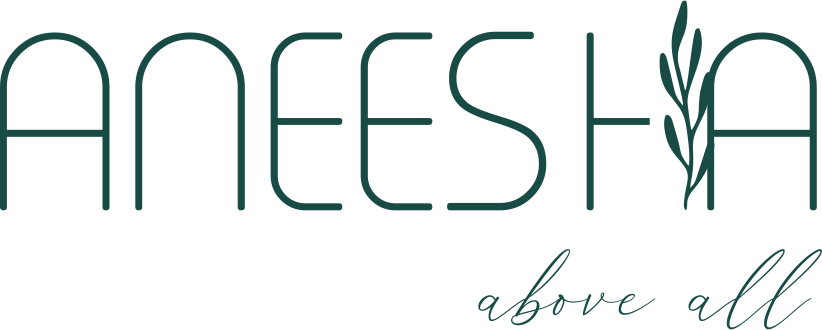The Significance of Strategic Budgeting
In the realm of home buying, one of the pivotal elements is the practice of budgeting wisely. Strategic budgeting plays a crucial role in optimizing your financial resources and ensuring readiness for homeownership. This article delves into essential tips and strategies to facilitate effective budgeting, saving for a down payment, exploring mortgage options, researching home prices and locations, considering supplementary expenses, and making well-informed financial decisions.
Establishing a Realistic Budget
The initial step in your home buying journey involves setting a practical budget. Begin by assessing your current financial status, encompassing income, expenditures, and existing debts. Determine an appropriate allocation for housing expenses that aligns with your financial comfort level. This encompasses factors like monthly mortgage payments, property taxes, insurance, utilities, and maintenance costs. By adhering to a budget that suits your means, you can steer clear of financial strain and maintain a stable homeownership experience.
Saving for a Down Payment
Building savings for a down payment stands as a crucial aspect of the home-buying process. A larger down payment can lead to reduced monthly mortgage payments and potentially secure favorable interest rates. Kickstart this endeavor by scrutinizing your finances and pinpointing areas where expenditure can be minimized. Establish a dedicated savings account specifically designated for your down payment. Automate regular contributions to this account to streamline the saving process. Furthermore, explore options such as down payment assistance programs or consider receiving financial contributions from family members to bolster your savings.
Exploring Mortgage Alternatives
Navigating through mortgage options is pivotal in securing the most suitable arrangement. Various mortgage programs and lenders offer distinct terms, interest rates, and down payment prerequisites. Thoroughly research and compare these options to pinpoint the one that aligns with your financial objectives. Consider aspects such as fixed-rate versus adjustable-rate mortgages and the duration of the loan term. Seeking guidance from a reputable mortgage lender or financial advisor can provide invaluable insights and assist in making informed decisions.
Researching Home Prices and Locations
Conducting thorough research on home prices and preferred locations is paramount in strategic budgeting for prospective homebuyers. Begin by identifying regions that match your lifestyle, proximity to amenities, and commuting requirements. Delve into comprehensive research on the prevailing real estate market trends and average home prices in these areas. Keep in mind that certain locations may offer more cost-effective options while fulfilling your criteria. Diligent research enables you to identify areas that offer optimal value for your investment.
Considering Additional Expenses
Incorporating additional costs beyond the purchase price is crucial when formulating your home purchase budget. These expenses encompass closing costs, home inspection fees, property taxes, homeowner’s insurance, and potential renovation or repair expenses. Incorporate these outlays into your budget calculations to gain a holistic understanding of the financial obligations associated with homeownership. Preparedness for these supplementary costs aids in averting unexpected financial burdens and maintaining a secure financial standing.
Making Intelligent Financial Choices
When navigating the journey of purchasing a home, it’s crucial to make prudent financial decisions that are in line with your budget and future aspirations. Steer clear of acquiring extra debt or engaging in substantial purchases that could jeopardize your financial well-being. Uphold a favorable credit score by ensuring timely payment of bills and responsible management of debts. Consider seeking advice from a financial advisor who can offer tailored guidance based on your individual circumstances. By making judicious financial decisions, you can position yourself for a prosperous and enduring homeownership experience.
Frequently Asked Questions (FAQs)
Q1: What is the recommended amount to set aside for a down payment?
A: While 20% of the home’s purchase price is often advised as the ideal down payment, it may not be feasible for everyone. Depending on your financial situation and the mortgage program, you might qualify for a mortgage with a lower down payment, possibly as low as 3%. However, be aware that a smaller down payment could lead to additional expenses like private mortgage insurance (PMI).
Q2: Is it advisable to focus on paying off existing debts before purchasing a home?
A: Prioritizing the repayment of high-interest debts before buying a home is generally recommended. This strategy can boost your credit score and reduce your debt-to-income ratio, potentially making it easier to secure a mortgage with favorable terms. However, finding a balance between debt repayment and saving for a down payment is crucial, taking into consideration your individual financial circumstances.
Q3: How can I calculate my expected monthly mortgage payments?
A: You can estimate your monthly mortgage payments using online mortgage calculators that factor in variables such as the loan amount, interest rate, and loan duration. Keep in mind that this estimate is approximate, and your actual mortgage payment may vary based on additional factors like property taxes and insurance costs.
Q4: Is there room for negotiation regarding closing costs?
A: Negotiating closing costs with the seller or lender may be possible in certain situations. However, it’s important to approach these negotiations thoughtfully and seek guidance from a knowledgeable real estate professional or attorney to navigate the process effectively.
Q5: What steps can I take to increase my chances of mortgage approval?
A: Enhance your likelihood of mortgage approval by maintaining a strong credit score, saving for a larger down payment if feasible, and ensuring your debt-to-income ratio remains within acceptable limits. It’s also beneficial to gather all required financial documents and be prepared to provide additional information as requested by the lender.
Conclusion
Purchasing a home marks a thrilling and pivotal milestone, and with prudent budgeting strategies, you can optimize your finances and reach your homeownership aspirations. Begin by establishing an attainable budget, actively saving for a down payment, examining various mortgage choices, conducting thorough research on home costs and areas, factoring in extra expenses, and making well-informed financial choices. Maintain discipline, seek expert advice as required, and relish the process of discovering your ideal home while upholding financial stability.









